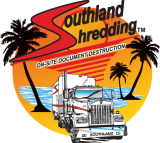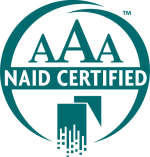
The New Year is the perfect time to start fresh and take control of your document clutter. Many of us accumulate sensitive papers that could put our personal or business information at risk if not properly disposed of. Shredding these documents reduces clutter, helps protect your privacy, and prevents identity theft. Here’s a guide on which documents to shred and why it matters.
The New Year And Document Security
The New Year is synonymous with fresh starts, resolutions, and a chance to get organized. For many individuals and businesses, it’s also a prime opportunity to declutter and revamp document management practices.
But here’s the thing—it’s not just about clearing up physical space. Failing to dispose of sensitive documents securely can lead to identity theft, financial fraud, or even legal consequences. Creating a robust document disposal and shredding plan for the New Year ensures that your personal information and professional integrity remain protected.
Why Start Now?
January is the perfect time to reassess which documents are piling up unnecessarily—did you know the average office worker uses 10,000 sheets of paper annually? By streamlining your document management, you can save time and reduce waste while maintaining a system for ongoing security throughout the year.
Why Shredding Documents Is Essential
- Protect Against Identity Theft:
Thieves can use personal information on documents like bank statements and credit card bills to steal your identity. Shredding these documents ensures that your private information remains secure.
- Ensure Legal Compliance:
Businesses are often required to follow privacy laws, such as HIPAA or FACTA, which mandate the proper disposal of sensitive customer data. Shredding ensures compliance with these regulations.
- Reduce Clutter and Stay Organized:
Eliminating unnecessary documents helps you stay organized, making it easier to find important files when needed.
Documents That Should Be Shredded
Not sure where to start? Here’s a comprehensive look at the types of documents you should shred to protect your information:
- Financial Statements
- Expired bank and credit card statements- these contain account numbers, names, and addresses that could be used for identity theft.
- Old receipts can also contain personal information such as credit card numbers and signatures.
- Tax Forms – Any tax forms older than seven years should be shredded to prevent potential fraud.
- Medical Records
- Prescription labels- these can reveal sensitive health information.
- Insurance documents- shredding ensures that your medical history remains private.
- Legal Documents
- Expired contracts or leases may contain personal information about you or your business partners.
- Old legal correspondence- this can include sensitive information about ongoing cases or legal matters.
- Personal Information
- Social Security cards- it is important to dispose of old or unnecessary Social Security cards properly
- Ca.nceled checks- these may contain personal information, such as bank account numbers and signatures.
- Old IDs or passports- it is important to shred these documents to prevent identity theft.
- Financial Records
- Bank statements- these may contain sensitive information about your finances.
- The credit card offers and statements- shredding these can help prevent identity theft.
- Business Documents
- Client lists- this information should be kept confidential and securely disposed of when no longer needed.
- Employee records- it is important to properly dispose of old employee records to protect their personal information.
-
Utility Bills and Receipts
-
The bills may contain personal information, such as your address and account number.
- Receipts- it is important to shred receipts with sensitive information, such as credit card numbers or signatures.
By categorizing these documents, you can systematically review what’s necessary to keep and securely shred the rest.
When To Shred Documents
Now that you know which documents to shred, it’s important to plan when to shred them. Here are some tips:
- Schedule regular shredding sessions: To stay on top of document disposal, make shredding part of your weekly or monthly routine.
- Shred immediately after use: As soon as you no longer need a document, shred it right away instead of leaving it lying around.
- Utilize professional shredding services: For larger quantities of sensitive documents, consider using a professional shredding service. They can securely destroy and dispose of your documents, providing peace of mind and convenience.
How Southland Shredding Can Help
Southland Shredding offers secure, convenient, and compliant document destruction services. Whether you need a one-time purge or scheduled shredding, our services ensure your sensitive information is destroyed. We also provide drop-off options, giving you peace of mind.
Start the New Year with a fresh, clutter-free workspace. Contact Southland Shredding today to schedule your document purge and protect your information.
Visit Southland Shredding for more information!




